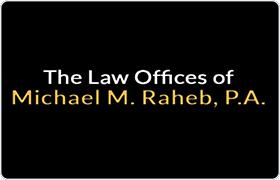 Cape Coral Criminal Lawyers, Florida
Cape Coral Criminal Lawyers, Florida
Sponsored Law Firm
-
 x
x

Click For More Info:
-
Law Offices of Michael M. Raheb P.A.
2423 First St Fort Myers, FL 33901» view mapCriminal Defense Law Legal Problem? Call Us 24/7
At the Law Office of Michael M. Raheb, we strive to ensure each of our clients receives the individual attention and representation necessary to obtain an optimal outcome.
800-890-8981
Sponsored Lawyers
1-10 of 172 matches
Criminal, Immigration, Bankruptcy & Debt, Divorce & Family Law, Accident & Injury
With over 25 years of experience, attorney Diane Gonzalez has provided numerous clients effective and reliable legal counsel on a wide range of legal topics. She is highly regarded and well known for offering sound, expert legal advice on family, bankruptcy, and criminal cases. Diane Gonzalez’s law office is located in Estero, FL, and provides legal help to clients in Fort Myers, Bonita Springs, Naples, Cape Coral, Port Charlotte, and all areas in Lee County, Florida.
(more)Criminal, Domestic Violence & Neglect, Family Law, Accident & Injury, Personal Injury
Michael Raheb has successfully handled hundreds of cases in the state and federal courts of Southern Florida, in both the criminal and civil arenas. He believes in aggressively attacking all aspects of the opposing side’s case to obtain the most favorable outcome for his clients. As part of this aggressive representation, Mr. Raheb makes sure each of his clients’ cases is handled personally and that they have access to his skills and counsel anytime of the day or night.
(more)

 Michael M. Raheb Fort Myers, FL
Michael M. Raheb Fort Myers, FL Practice AreasExpertise
Practice AreasExpertise



